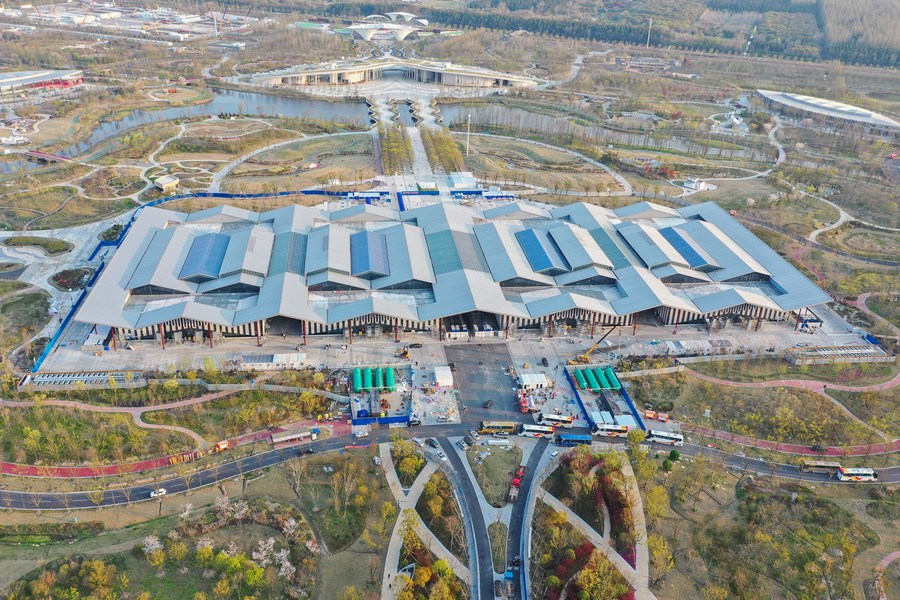
More than 38,000 medics from 15 provincial-level regions have rushed to China's business hub Shanghai to aid the megacity in its fight against resurging COVID-19.

Some 27,000 medics are responsible for sampling and testing work, and another 11,000 work in temporary hospitals, according to the National Health Commission.
Shanghai reported 311 confirmed locally transmitted COVID-19 cases and 16,766 local asymptomatic carriers on Tuesday.
Since March 1, about 90,000 people have been infected with the highly contagious Omicron variant, data from the municipal health commission shows.
CONCERTED EFFORT
The Shanghai Hongqiao Railway Station resumed its bustling scene over the past few days, with dozens of trains carrying thousands of medics and tonnes of anti-epidemic supplies pulling in. Between April 3 and 4, a total of 26 charter flights from seven provincial-level regions landed in Shanghai's two major airports.
"We were notified on April 2, immediately formed a team of 60 medics and arrived in Shanghai the next day," said Qi Qin with the Tai'an City Central Hospital, east China's Shandong Province.
"Two years ago, when Wuhan and our hospital were in the toughest moment, medics from Shanghai were among the first that arrived," said Cheng Fang, head nurse of the intensive care unit in the south area of Jinyintan Hospital, Wuhan City of Hubei Province.
"Experts from Shanghai taught us step by step how to strengthen personal protection and treat critically ill patients. Now Shanghai has encountered some difficulties. We are duty-bound and should arrive as soon as possible," Cheng said.
Many of the medical teams coming to support Shanghai have rich anti-epidemic experiences.
"Among the 28 medical staff from our hospital, some aided the anti-epidemic fight in Wuhan and some had been to Qingdao. They are the most experienced and elite forces," said Teng Tao, associate chief physician of the endocrinology department of the Second Affiliated Hospital of Shandong University of Traditional Chinese Medicine.

"I was in Hubei for 58 days in 2020. Back then we knew little about the novel coronavirus, as we learn more about it and constantly improve our anti-epidemic measures, I'm sure we can beat it," said Gao Hongyi, a nurse from Shandong.